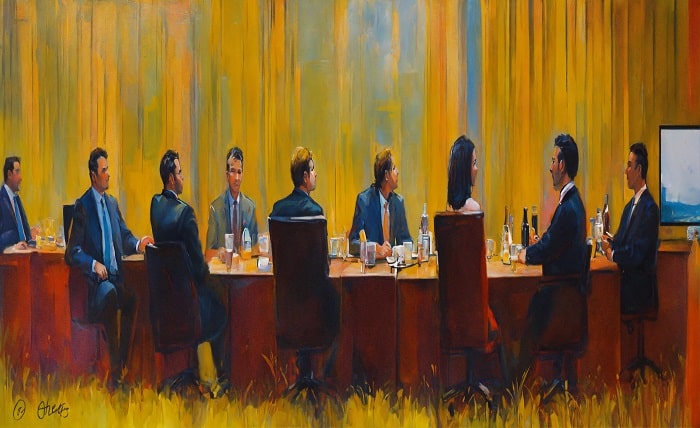
Table of Contents
ToggleIntroduction:
Welcome to the world of whiskey business, where passion meets tradition and craftsmanship blends with innovation. Whether you’re a seasoned enthusiast or a curious novice, exploring the realm of whiskey is a journey filled with depth and flavor. In this guide, we’ll uncork the secrets of whiskey production, explore its diverse varieties, and shed light on the thriving whiskey market.
Origins of Whiskey:
The story of whiskey begins centuries ago, with its origins tracing back to medieval monks in Europe. These early alchemists distilled grains into a potent elixir, laying the groundwork for the whiskey we know today. From the rugged highlands of Scotland to the rolling hills of Kentucky, each region has its own unique whiskey tradition.
Crafting the Spirit:
At the heart of the whiskey business lies the art of distillation. Master distillers carefully select grains, yeast, and water to create the perfect mash. Through precise fermentation and distillation processes, they transform these raw ingredients into liquid gold, rich in flavor and character.
Types of Whiskey:
Whiskey comes in many forms, each with its own distinct taste profile and production method. From the smoky allure of Scotch to the boldness of bourbon, there’s a whiskey for every palate. Rye whiskey, Irish whiskey, and Japanese whisky further add to the diversity of this beloved spirit.
Navigating the Market:
In today’s bustling whiskey market, navigating your options can be daunting. From small-batch craft distilleries to established giants, there’s no shortage of choices. Understanding labels, age statements, and tasting notes can help you make informed decisions as you explore the vast landscape of whiskey offerings.
Trends and Innovations:
As the whiskey business evolves, so do consumer preferences and industry trends. From flavored expressions to experimental aging techniques, innovation drives excitement in the market. Keeping an eye on emerging trends can lead to new discoveries and delightful tasting experiences.
Whiskey Collecting and Investment:
For some, whiskey isn’t just a passion—it’s an investment opportunity. Rare and limited-edition bottles command hefty prices in the secondary market, attracting collectors and investors alike. Understanding the factors that contribute to a whiskey’s value can help enthusiasts make savvy investment decisions.
The Art of Tasting:
Tasting whiskey is more than just sipping—it’s an art form that engages all the senses. From the aroma of caramel and oak to the complex interplay of flavors on the palate, each sip tells a story. Learning how to taste whiskey allows enthusiasts to appreciate its nuances and deepen their enjoyment of the spirit.
Whiskey Cocktails:
While savoring whiskey neat is a time-honored tradition, it also shines in cocktails. From classic Old Fashioneds to modern twists like whiskey sours, mixologists continue to innovate with this versatile spirit. Exploring whiskey cocktails opens up a world of creativity and endless possibilities.
Sustainability in Whiskey Production:
In an era of increasing environmental consciousness, sustainability is becoming a priority for whiskey producers. From sourcing local ingredients to implementing eco-friendly practices, distilleries are embracing sustainability initiatives. By reducing their environmental footprint, they ensure that future generations can continue to enjoy whiskey responsibly.
The Future of Whiskey:
As the whiskey business continues to thrive, its future holds endless possibilities. From emerging markets to technological advancements, the industry is poised for growth and innovation. Whether you’re a whiskey aficionado or a curious newcomer, the journey of whiskey discovery is one that promises excitement and enjoyment.
Conclusion:
In the vast landscape of the whiskey business, there’s always something new to discover and savor. From its rich history to its promising future, whiskey captivates enthusiasts around the globe. Whether you’re raising a glass to celebrate or embarking on a tasting adventure, whiskey remains a timeless spirit that brings people together.
FAQs:
1. What makes whiskey different from other spirits?
Whiskey distinguishes itself through its production process, which involves distilling fermented grains and aging the resulting spirit in wooden barrels. This process imparts unique flavors and characteristics not found in other spirits.
2. How should I store whiskey to maintain its quality?
To preserve the integrity of whiskey, store it upright in a cool, dark place away from direct sunlight and extreme temperatures. Avoid frequent temperature fluctuations, as they can affect the flavor of the whiskey over time.
3. Are older whiskies always better?
While age can impart complexity to whiskey, it’s not always indicative of quality. Factors such as distillation technique, barrel type, and storage conditions also play significant roles in shaping the final product.
4. Can I mix different types of whiskey in cocktails?
Absolutely! Mixing different types of whiskey can add depth and complexity to cocktails. Experimenting with various whiskey styles allows you to tailor the flavor profile of your cocktails to suit your preferences.
5. Is whiskey gluten-free?
Most whiskey is gluten-free, as the distillation process removes gluten proteins from the final product. However, individuals with gluten sensitivities should exercise caution and consult with a healthcare professional if unsure.




